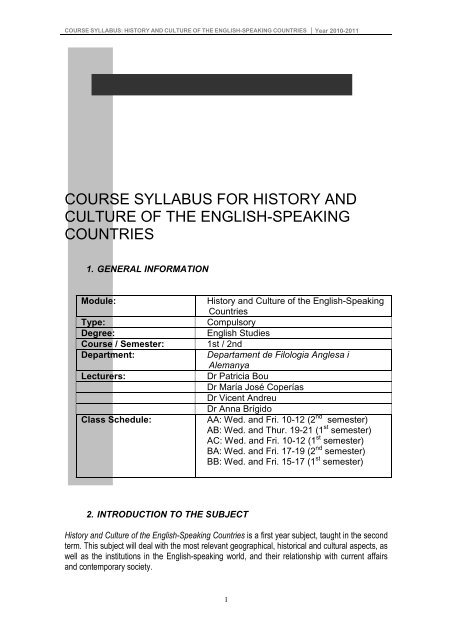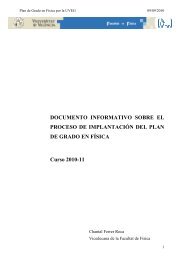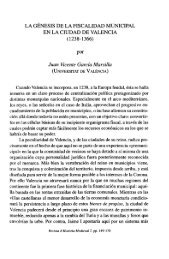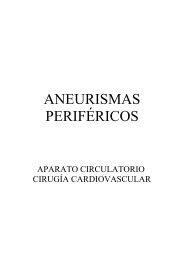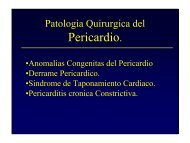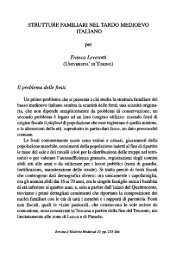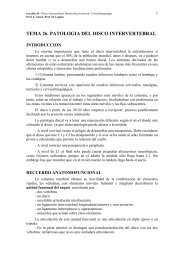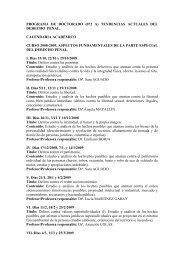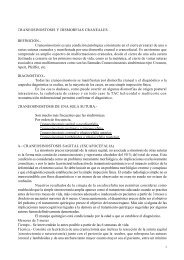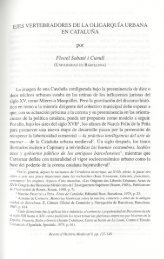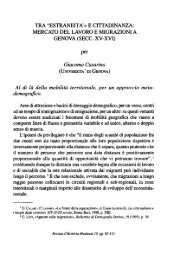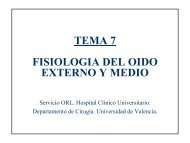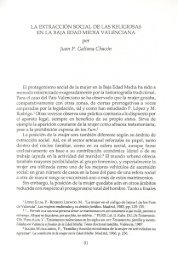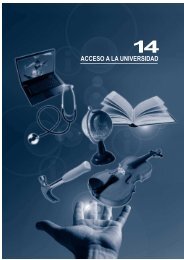COURSE SYLLABUS FOR HISTORY AND CULTURE OF THE ...
COURSE SYLLABUS FOR HISTORY AND CULTURE OF THE ...
COURSE SYLLABUS FOR HISTORY AND CULTURE OF THE ...
You also want an ePaper? Increase the reach of your titles
YUMPU automatically turns print PDFs into web optimized ePapers that Google loves.
<strong>COURSE</strong> <strong>SYLLABUS</strong>: <strong>HISTORY</strong> <strong>AND</strong> <strong>CULTURE</strong> <strong>OF</strong> <strong>THE</strong> ENGLISH-SPEAKING COUNTRIES Year 2010-2011<br />
<strong>COURSE</strong> <strong>SYLLABUS</strong> <strong>FOR</strong> <strong>HISTORY</strong> <strong>AND</strong><br />
<strong>CULTURE</strong> <strong>OF</strong> <strong>THE</strong> ENGLISH-SPEAKING<br />
COUNTRIES<br />
1. GENERAL IN<strong>FOR</strong>MATION<br />
Module: History and Culture of the English-Speaking<br />
Countries<br />
Type: Compulsory<br />
Degree: English Studies<br />
Course / Semester: 1st / 2nd<br />
Department: Departament de Filologia Anglesa i<br />
Alemanya<br />
Lecturers: Dr Patricia Bou<br />
Dr María José Coperías<br />
Dr Vicent Andreu<br />
Dr Anna Brígido<br />
Class Schedule: AA: Wed. and Fri. 10-12 (2 nd semester)<br />
AB: Wed. and Thur. 19-21 (1 st semester)<br />
AC: Wed. and Fri. 10-12 (1 st semester)<br />
BA: Wed. and Fri. 17-19 (2 nd semester)<br />
BB: Wed. and Fri. 15-17 (1 st semester)<br />
2. INTRODUCTION TO <strong>THE</strong> SUBJECT<br />
History and Culture of the English-Speaking Countries is a first year subject, taught in the second<br />
term. This subject will deal with the most relevant geographical, historical and cultural aspects, as<br />
well as the institutions in the English-speaking world, and their relationship with current affairs<br />
and contemporary society.<br />
1
<strong>COURSE</strong> <strong>SYLLABUS</strong>: <strong>HISTORY</strong> <strong>AND</strong> <strong>CULTURE</strong> <strong>OF</strong> <strong>THE</strong> ENGLISH-SPEAKING COUNTRIES Year 2010-2011<br />
This subject should be useful as background knowledge for literature and linguistics subjects,<br />
such as “History of the English Language”, or aspects related to varieties of the English language,<br />
the cultural context in translation, etc.<br />
“Philosophical thought in the English-speaking world” complements “History and Culture” as both<br />
subjects provide general training in the Humanities with a focus on the English-speaking<br />
countries.<br />
This subject further contributes to the development of social values related to gender equality,<br />
democracy, and linguistic and cultural diversity.<br />
No previous knowledge is required but having an interest in history in general and in the way of<br />
life of the English-speaking countries and people, would be useful. Classes will be taught in<br />
English (B1 level required) and students should be able to follow them and participate actively.<br />
3. WORKLOAD<br />
Activities # hours<br />
Lectures, seminars, classroom presentations and other activities 40<br />
Practical classes 12<br />
Preparation of papers and projects, participation in forums and<br />
35<br />
blogs, etc.<br />
Class preparation and readings 33<br />
Preparation for examinations 25<br />
Sitting examinations 2<br />
Attendance at tutorials 3<br />
Workload 150<br />
Total ECTS credits 6<br />
4. COMPETENCES (GENERAL <strong>AND</strong> SPECIFIC) <strong>AND</strong> LEARNING<br />
OUTCOMES<br />
The competences developed in this subject are the following:<br />
General<br />
• The ability to clearly define and defend one’s points of view and to resolve problems<br />
within the area of linguistic and literary and cultural studies (C3)<br />
• The ability to gather and interpret relevant data in order to make judgements concerning<br />
scientific, social or ethical issues with an appropriate respect for the defence of Human<br />
Rights (C4)<br />
• The development of an ethical approach to issues such as gender equality, equal<br />
opportunity, democratic values, non-violence, environmental and sustainability problems<br />
as well as awareness of linguistic and cultural diversity (C7)<br />
• The ability to find, handle and synthesize bibliographical information and information from<br />
databases and other electronic tools, including the use of Internet (C9)<br />
2
<strong>COURSE</strong> <strong>SYLLABUS</strong>: <strong>HISTORY</strong> <strong>AND</strong> <strong>CULTURE</strong> <strong>OF</strong> <strong>THE</strong> ENGLISH-SPEAKING COUNTRIES Year 2010-2011<br />
• The development of interpersonal skills and the capacity for teamwork (C11)<br />
• The development of the capacity for individual work, independent learning, organizational<br />
skills and time management (C12)<br />
Specific<br />
• The ability to relate the geographical and historical aspects of the English-speaking world<br />
and its most relevant institutions with contemporary culture and society (C16)<br />
• The ability to compare and contrast different aspects of studies in language and literature<br />
and relate these studies with other areas and disciplines (C35)<br />
5. CONTENTS<br />
Content for the course will be drawn from the following areas:<br />
• Introduction: History, Culture, the English-speaking world<br />
• Geography: Geographical aspects of the UK, Ireland and the USA<br />
• Outline of the history of the British Isles:<br />
o Early Times<br />
o The Middle Age<br />
o The Tudors and the Stuarts<br />
o The 18 th and 19 th centuries in the United Kingdom and Ireland<br />
• Outline of the history of the United States:<br />
o British Colonies in America<br />
o Independence, Civil War and the growth of the US<br />
• Overview of the 20 th and 21 st centuries in the United Kingdom and Ireland<br />
o Historical and cultural landmarks<br />
o Contemporary society<br />
o System of government<br />
o Education<br />
o Media<br />
• Overview of the 20 th and 21 st centuries in the United States<br />
o Historical and cultural landmarks<br />
o Contemporary society<br />
o System of government<br />
o Education<br />
o Media<br />
• UK/US contemporary culture and society<br />
o Culture through institutional discourse: politics, education, and the media<br />
(television, written press, Internet)<br />
3
<strong>COURSE</strong> <strong>SYLLABUS</strong>: <strong>HISTORY</strong> <strong>AND</strong> <strong>CULTURE</strong> <strong>OF</strong> <strong>THE</strong> ENGLISH-SPEAKING COUNTRIES Year 2010-2011<br />
o Social and cultural diversity geography<br />
o Social and cultural diversity in contemporary UK/US: gender, age, ethnicity,<br />
social class, identity<br />
• Overview of the English-speaking world<br />
o Geography and socio-linguistic contact<br />
o Historical and cultural landmarks<br />
o Contemporary society, diversity and identity politics<br />
6. CONTENTS <strong>AND</strong> SCHEDULE<br />
The contents listed in the previous section (5), will be specified and scheduled by the lecturers<br />
each year. For further details please look at the course and group-specific syllabus in Aula Virtual<br />
at the beginning of the semester.<br />
# UNITS WEEKS<br />
Introduction and Geographical Aspects 1<br />
History and Culture of the British Isles 4<br />
History and Culture of the United States 4<br />
The English-Speaking World 2<br />
Other Aspects of Contemporary Culture and Society 2<br />
7. METHODOLOGY <strong>AND</strong> ACTIVITIES<br />
Class Methodology:<br />
• Theory-based classes:<br />
Lectures by the lecturer, plus presentations of previously researched material by the<br />
students.<br />
• Practical classes:<br />
Discussion of texts, maps, advertisements, speeches, videos or any other material useful<br />
to understand historical and cultural issues specific to the English-speaking world.<br />
In addition to lectures and seminars, students may be asked to attend tutorials in small<br />
groups in order to revise some of their written activities and comments.<br />
4
<strong>COURSE</strong> <strong>SYLLABUS</strong>: <strong>HISTORY</strong> <strong>AND</strong> <strong>CULTURE</strong> <strong>OF</strong> <strong>THE</strong> ENGLISH-SPEAKING COUNTRIES Year 2010-2011<br />
In both, theory and practice, students are expected to participate actively through<br />
discussion, group work, online forums or blog contributions. This participation will be an<br />
important component of their final mark.<br />
Additionally, students may be asked to produce written material and to make<br />
presentations.<br />
8. LEARNING ASSESSMENT<br />
Following the group-specific syllabus available in Aula Virtual at the beginning of each<br />
semester, students’ knowledge and competences will be assessed drawing on the notes,<br />
(non)-mediated texts, and on any other activities developed in class or in virtual learning<br />
environments if these are implemented. For details, please check Aula Virtual.<br />
Assessment breakdown for those students who attend classes regularly:<br />
Type of assessment % of final grade<br />
a) Individual work and/or group work, including activities and<br />
projects, in-class participation etc.<br />
5<br />
30 %<br />
b) Written assessments 70%<br />
Students who are unable to attend classes and participate in a satisfactory manner will<br />
take a longer final examination. The amount of work on which they will be assessed will<br />
be equivalent to 150 ECTS working hours (6 credits), as in the case of students who do<br />
the standard type of assessment. Questions will be drawn from notes, dossiers, websites<br />
and/or any other readings indicated by the lecturer.<br />
9. MATERIALS<br />
a) Course Syllabus (check expanded syllabus on Aula Virtual)<br />
b) Notes given in class<br />
c) Activities dossier<br />
d) Reader
<strong>COURSE</strong> <strong>SYLLABUS</strong>: <strong>HISTORY</strong> <strong>AND</strong> <strong>CULTURE</strong> <strong>OF</strong> <strong>THE</strong> ENGLISH-SPEAKING COUNTRIES Year 2010-2011<br />
10. BIBLIOGRAPHY <strong>AND</strong> SOURCES <strong>OF</strong> IN<strong>FOR</strong>MATION<br />
A. General references<br />
ABERCROMBIE, Nicholas & WARDEN, Alan. (1994) 1995. Contemporary British Society. Cambridge:<br />
Polity.<br />
BASSNETT, Susan. 1997. Studying British Cultures. An Introduction. London: Routledge.<br />
BREIDLID, A. et al. (eds.) 1996. American Culture. New York: Rougledge.<br />
BRIGGS, Asa. (1983) 1985. A Social History of England. Harmondsworth: Penguin.<br />
Dictionary of Language and Culture. Longman.<br />
CAMPBELL, N. and A. KEVIN. 1999. American Cultural Studies. New York: Routledge.<br />
GILES, Judy & MIDDLETON, Tim. 1999. Studying Culture. A Practical Introduction. Oxford: Blackwell.<br />
HARVEY, Paul & JONES, Rhodri. (1992) 1994. Britain Explored. Harlow, Essex: Longman.<br />
HERNÁNDEZ ALONSO, J.J. 1996. Los Estados Unidos de América: Historia y Cultura. Salamanca:<br />
Ediciones Colegio de España.<br />
JONES, M.A. 1995. The Limits of Liberty. American History 1607-1992. 2 nd Ed. Oxford: Oxford University<br />
Press.<br />
O’DRISCOLL, James. 1995. Britain. Oxford: Oxford University Press.<br />
ROGERS, E.M. & STEINFATT, T.M. (1999) Intercultural Communication, Prospect Heights: Waveland.<br />
ROOM, Adrian. (1990) 1992. An A to Z of British Life. Oxford: Oxford University Press.<br />
SAMOVAR, L.A. & PORTER, R.E. (1997) Intercultural Communication: A Reader. Wadsworth.<br />
STOREY, John. 1993. An Intoductory Guide to Cultural Theory & Popular Culture. London: Harvester<br />
Wheatsheaf.<br />
-------------------. (1994) 1998. Cultural Theory & Popular Culture. A Reader. London: Prentice Hall. *<br />
-------------------. 1996. What is Cultural Studies? A Reader. London: Arnold. *<br />
STORRY, Mike & CHILDS, Peter. British Cultural Identities (2 nd edition). London: Routledge.<br />
TURNER, Graeme. 1992. British Cultural Studies. London & New York: Routledge.<br />
B. Specific references<br />
Unit 1. Geographical aspects<br />
OAKL<strong>AND</strong>, John. 1995. British Civilization. London & New York: Routledge.<br />
MAUK, D. & OAKL<strong>AND</strong>, J. 1997. American Civilization. An Introduction. 2 nd Ed. New York: Routledge.<br />
Identify the regions and counties of Britain: http://gwydir.demon.co.uk/jo/maps/ukindex.htm<br />
Identify Rivers and Lakes of the British Isles: http://gwydir.demon.co.uk/jo/maps/ukrivers/index.htm<br />
Interactive map: US & Canada http://www.yellowmaps.com/<br />
Identify States in the US: http://gwydir.demon.co.uk/jo/maps/usaindex.htm<br />
Expansion of the British Empire: http://www.the-map-as-history.com/demos/tome05/index.php<br />
English-Speaking Countries: http://the_english_dept.tripod.com/esc.html<br />
Unit 2. History and culture of the British Isles<br />
GILBERT, M.1993. The Routledge Atlas of British History. 3 rd Ed. London: Routledge.<br />
McDOWALL, David. 1993. Britain in Close-up. Harlow, Essex: Longman.<br />
McDOWALL, David. (1989) 1994 An Illustrated History of Britain. Harlow, Essex: Longman.<br />
OAKL<strong>AND</strong>, John. 1995. British Civilization. London & New York: Routledge.<br />
The National Archives: http://nationalarchives.gov.uk/education/default.htm<br />
BBC Interactive Timeline: http://www.bbc.co.uk/history/interactive/timelines/british/index.shtml<br />
Britain and the First World War: http://www.nationalarchives.gov.uk/pathways/firstworldwar/index.htm<br />
BBC: World Wars in depth: http://www.bbc.co.uk/history/worldwars/wwtwo/<br />
Unit 3. History and culture of the US<br />
6
<strong>COURSE</strong> <strong>SYLLABUS</strong>: <strong>HISTORY</strong> <strong>AND</strong> <strong>CULTURE</strong> <strong>OF</strong> <strong>THE</strong> ENGLISH-SPEAKING COUNTRIES Year 2010-2011<br />
FIEDLER, E. et al. (1990)1998. American in Close-up. Harlow, Essex: Longman.<br />
GILBERT, M.2003. The Routledge Atlas of American History. 3 rd Ed. London: Routledge. **<br />
MAN, D. and J. OAKL<strong>AND</strong>. 1998. American Civilisation: An Introduction. New York: Routledge.<br />
MAUK, D. & OAKL<strong>AND</strong>, J. 1997. American Civilization. An Introduction. 2 nd Ed. New York: Routledge.<br />
O’CALLAGHAN, B. (1990) 1997. An Illustrated History of the USA. Harlow, Essex: Longman<br />
American Studies Association: http://www.georgetown.edu/crossroads/asainfo.html<br />
Library of Congress: http://lcweb.loc.gov/<br />
Online resources in US History: http://xroads.virginia.edu/-HYPER/wpa/links.html<br />
US Constitution: documents, topics and more http://www.usconstitution.net/consttop.html<br />
The White House: http://www.whitehouse.gov/<br />
Unit 4. The English speaking world<br />
ASHCR<strong>OF</strong>T, BILL; Gareth Williams and Helen Tiffin (eds). The Post-Colonial Studies Reader.<br />
London: Routledge, 2006<br />
CHATTERJEE, PARTHA. The Nation and its Fragments: Colonial and Postcolonial Histories.<br />
Princeton, NJ: Princeton University Press, 1993<br />
SAID, EDWARD. Orientalism. London: Penguin, 2003<br />
VALDÉS MIYARES, J.R. & TAZÓN SALCES, J.E. 1997. A Sourcebook of English Civilization. Oviedo:<br />
Servicio de Publicaciones de la Universidad de Oviedo.<br />
English Around the World: http://eleaston.com/world-eng.html<br />
The British Empire: http://www.britishempire.co.uk/<br />
Unit 5. Contemporary culture and society through discourse.<br />
DURANT, ALAN & LAMBROU, MARINA (2009), Language and Media: A Resource Book for Students.<br />
London: Routledge,.<br />
LORENZO-DUS, N. 2009. Television Discourse: Analysing Language in the Media. Basingstoke: Palgrave<br />
Macmillan.<br />
THOMAS, L. ET AL. (2004) Language, Society and Power: An Introduction. London: Routledge. 2 nd<br />
Edition.<br />
BOU-FRANCH, P. (2009) History and Culture Class Blog. http://www.historiayculturab2010.blogspot.com/<br />
* Biblioteca de Ciencias Sociales (Campus de Tarongers).<br />
** Biblioteca de Medicina<br />
7


